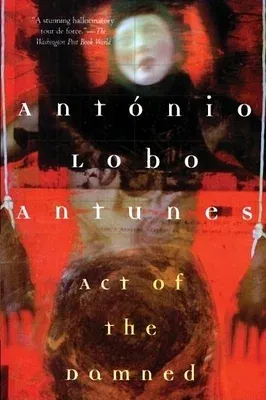António Lobo Antunes
(Author)Act of the DamnedPaperback, 12 September 1996

Qty
1
Turbo
Ships in 2 - 3 days
In Stock
Free Delivery
Cash on Delivery
15 Days
Free Returns
Secure Checkout

Part of Series
Antunes, Antonio Lobo
Print Length
246 pages
Language
English
Publisher
Grove Press
Date Published
12 Sep 1996
ISBN-10
0802134769
ISBN-13
9780802134769
Description
Product Details
Author:
Book Format:
Paperback
Country of Origin:
US
Date Published:
12 September 1996
Dimensions:
21.03 x
14.02 x
1.88 cm
Genre:
Portuguese
ISBN-10:
0802134769
ISBN-13:
9780802134769
Language:
English
Pages:
246
Publisher:
Series:
Weight:
285.76 gm